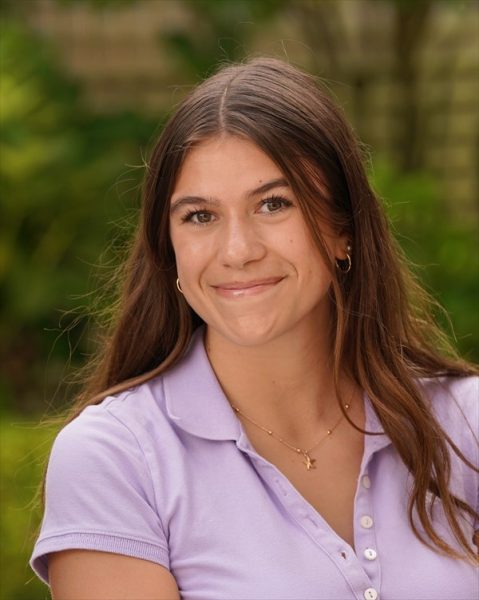Youth struggle to survive on city streets
December 16, 2009
Jovel Quierolo
Managing Editor
Luke Burton invites homeless children for dinner every Tuesday night. Over the past three years as a member of the faith-based outreach group The Outer Circle, he has met hundreds of the estimated 1,400 homeless youth living on San Francisco streets, shelters or with friends or family.

“Think about the power and privilege we were born into,” said Burton. “I had a house, lots of things, and didn’t have to earn it — the same way homeless kids didn’t earn their poverty. I’ve been fortunate enough to get an education. It seems selfish not to share what we have to help others who can’t even help themselves.”
Fifteen percent of the city’s homeless youth fall between the ages of 13 and 18, according to city emergency shelter statistics. Dawn Stueckle, co-founder and the Executive Director of Sunset Youth Services, says that without normal comforts like food and shelter, homeless youth go through a state of trauma.
“Things start to dissolve,” said Stueckle, whose organization evolved from a youth group that helps troubled kids with unsafe family structures. “The kids don’t feel safe. People lose the ability to make cognitive decisions when they’re in survival mode. They can’t focus at school. Wondering where their next meal is coming from or where they’re going to sleep, they are just trying to stay alive.”
This was the case with [Name redacted] who was born in Oakland in 1984 and grew up in San Francisco’s Hunter’s Point where he lived with an aunt after being taken away from his mother after he fell off a two-story balcony.
“My mom had problems with drugs and alcohol, so we lived with my aunt,” said [Name redacted]. “She kept us for a long time, but she was a victim of sexual abuse and it was hard being only guy in the household. I didn’t know what to do. I ran away when I was 14.”
At the time, he was a student at Amadeo Pietro Giannini Middle School in the Sunset and lived in the neighborhood with a friend he met at school.
“I met some really nice people,” said [Name redacted]. “Being in the neighborhood, I met Dawn [Stueckle]. [She] had a heart for people — people who don’t have opportunities to succeed. I was one of those people. But even though I ran away from my problems, they never really got taken care of.”
Under pressure of simply surviving from day to day, the body shuts down, according to Stuekle. To deal with the pain and fear of not having food or a place to sleep, homeless youth may give up on themselves and end up with addictions.
“The kids struggle at school and in relationships because it is hard to live and sleep at a shelter or on the street,” said Stueckle. “Some shelters are considered worse than the streets. You could have babies crying and people snoring. Lots of times, kids end up sleeping in these big rooms filled with bunk beds. In the morning, they can’t just wake up take a shower and have breakfast.”
[Name redacted] had freedom but no motivation without anyone to raise or mentor him, so he quit trying at his education by the time he was in high school.
“I didn’t think about much when I was younger,” said [Name redacted]. “I tried to block stuff out. I had it in my mind that I didn’t really excel at anything. I could care less about school. I was always interrupting the class and didn’t do homework. I liked basketball and music, especially rap. I didn’t have anybody cheering me on or anything.”
Without support, [Name redacted] led a dangerous lifestyle.
“I ended up drinking and smoking a lot,” said [Name redacted]. “I could do whatever I wanted to do. Partying late nights, going out with these girls. Then my friend’s mom had enough so she put us out on the street. That was my first experience with being homeless. Sleeping in cars and stuff like that. In and out of juvenile hall.”
He got help. [Name redacted] went to Teen Challenge, a drug rehabilitation program, when he was 18 years old and they helped him turn sober and helped him enroll for college education at Bethany College.
“But the thing was, I still had that mentality of being homeless,” said [Name redacted]. “I’ll come to a point where I start to succeed, and next thing you know, I’m out of school. In jail again. I was homeless again for six months. Sleeping on the beach, and in abandoned apartments.”
Homelessness inflicts lasting psychological damage on youth, according to [Name redacted].
“Being a homeless person robbed me of my childhood,” said [Name redacted]. “It took away my ability to laugh. I didn’t have people telling me, ‘You can be whatever you want; I believe in you.’ Instead I got ‘You’re going to end up like your uncle who’s on death row — or your cousin who got shot. You’re going to die in prison.’ Those words became curses on my life, and I believed them.”
Being homeless as an adult, [Name redacted] had luckily received help before from Teen Challenge and knew what it was like to change.
“It was different, I was weird because I still knew what it was like to be good and to make it,” said [Name redacted]. “From something to nothing. Walking around with that guilt towards people I got into jail for hurting, I finally went back to Teen Challenge.”
[Name redacted] ended up at Bible college at 22 with time to think. Now 25, he works at Glad Tidings Church full-time.
“Coming back and facing problems has restored something,” said [Name redacted]. “I’m serving other people who’ve gone through what I’ve gone through because I know what it’s like to be given up on because I was given up on by family, friends, system, court, school.”
[Name redacted] has recently begun to communicate with some of his family. He has seen his father, who he had lost touch with for 10 years. He plays basketball every now and again for the exercise, works at the church and is exploring his old interest in music with gospel hip hop.
Burton says most programs for the homeless are for adults, but advocates increased concern for homeless youth to prevent damage that haunts kids who are scarred at their most vulnerable stage in development.
“These kids have been pushed to the edges of society hearing this message from people that they aren’t worth anything,” said Burton. “All we can do is help them or hope they get what they need. When they come see me, all I want is to build relationships with them before anything else. I want them to know that they’re valuable. I want them to know they’re worth something.”
Editor’s note: The name of subject of this story was redacted in August 2016 at his request.









